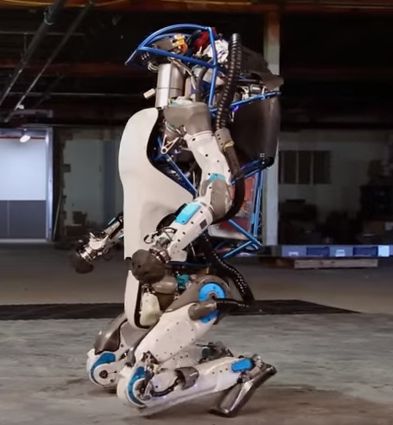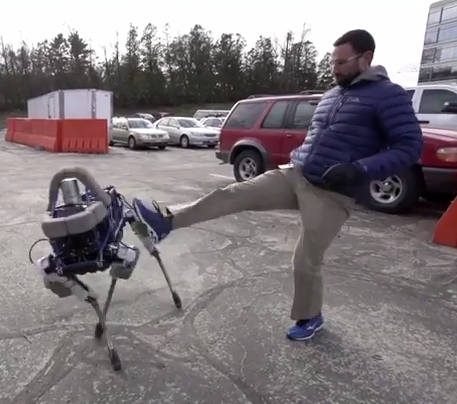| European Parliament Votes On Legal Status Of Robots |
| Written by Mike James | |||
| Thursday, 12 January 2017 | |||
|
There are some people who dig coal and there are others who argue about what color it should be. Is it just too early to be talking about a robot's status as an electronic person? Is this just a way to look like something useful is being done? AI is a tough problem. A really tough problem, and if we ever get close to solving it then it will be world changing. We will not be alone in the universe. There will be other thinking beings that are different from us. However, we are about an inch down a journey that could take us miles. Anyone with any insight into the current state of AI will tell you that we have made lots of progress recently, but sentient artificial agents are nowhere on the horizon. What we have created are relatively simple mechanisms that seem to do jobs that require intelligence. This is revolutionary enough, but it doesn't mean we need to start worrying about the legal status of robots - they are currently, and for the foreseeable future, simply machines that carry out our instructions in ways that might occasionally surprise us.
There are issues to be considered at a non-technical level. Should an autonomous car opt to kill a pedestrian to save its passengers or should it save the pedestrian at the cost of the passengers. What rules should apply to an autonomous weapon capable of pulling the trigger without a human being in the loop? These are reasonable questions of policy that really do need to be made clear but this is a slippery slope down which non-technical people can easily slide - which is what the European Parliament seems to have done with its report.
An animal welfare problem? The report considers many possibilities, including the application of the science fiction rules thought up by Asimov - the well known three laws of robotics:
Asimov explained that he invented these rules to make writing stories more interesting. If you haven't read I Robot then do; it is fun and nothing like the film of the same name. The point is that we are about as far from needing these laws as we are from Asimov's fictional positronic brain which worked in ways so mysterious it needed its own type of psychiatrist. The problem is that there are matters that need to be discussed and placed into a regulatory framework - insurance for robotic systems, some rules about who is at fault when systems are hacked and so on - but most of these apply to any moderately complex system and not just those that claim to be AI. The report calls for the creation of a European Agency to oversee robots and AI and this is to be voted on by the Parliament and then by individual governments. Is this all a good idea? It is all very reminiscent of the moment when Deep Thought, the computer in the Douglas Adams' Hitch Hikers Guide to the Galaxy (and if you haven't read it then it's another one to add to your list) tries to explain that during the building of an even bigger computer all the pundits and philosophers can benefit from the gravy train of discussing it on late-night TV. Put simply, there are some things to do, but most of the work still has to be done at the coal face before we can start to worry about whether or not a robot has rights. While some regulation, and musings on the new world we are building, is in order, we have to avoid the situation where the Golgafrinchans failed to invent the wheel because marketing couldn't decide what color it should be. And if you don't know the reference see Restaurant at the End of the Universe, your third reading recommendation. It is all too easy for non-experts in AI to get hold of more of the science fiction than the reality and we could spend a lot of money studying and regulating a fiction.
More InformationMEPs vote on robots' legal status - and if a kill switch is required Related ArticlesAutonomous Robot Weaponry - The Debate How Will AI Transform Life By 2030? Initial Report A Flaw In Turing's Test? No A Flaw In Academia Halting Problem Used To Prove A Robot Cannot Computably Kill A Human Survey Reveals American Public Suspicious Of Tech
To be informed about new articles on I Programmer, sign up for our weekly newsletter, subscribe to the RSS feed and follow us on Twitter, Facebook or Linkedin.
Comments
or email your comment to: comments@i-programmer.info
Network Security Assessment: Know Your Network |
|||
| Last Updated ( Sunday, 26 January 2020 ) |





